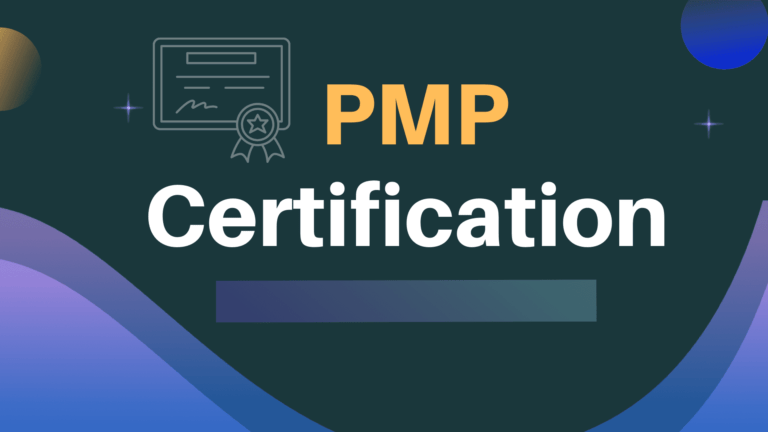Table of Contents
ToggleThe real estate market is fast-paced and complicated projects must be completed within strict time and financial constraints to remain competitive. The Project Management Professional (PMP) course is becoming increasingly popular among industry professionals as a tool to obtain the expertise necessary to satisfy these needs. In this article, we’ll look at how the PMP course is used in the real estate industry and why it’s one of the most useful project management resources available.
PMP Certification
The Project Management Professional (PMP) certification is a worldwide standard in the field of project management. It proves that the holder is an expert in the field of project management and demonstrates their leadership and management skills. Individuals who earn this credential have proven their ability to successfully initiate, plan, execute, monitor, control, and close projects.
Project Management’s Crucial Role in the Real Estate Industry
Due to the high risks and complexity of real estate projects, effective project management is essential. To be successful, real estate initiatives need meticulous preparation, organization, and implementation. Professionals in the real estate industry require the knowledge and skills taught in the PMP course to successfully manage the growing number and complexity of projects.
The Value of the Project Management Institute’s Real Estate Module
There are many advantages to taking the PMP course for those working in the real estate industry. First, it gives students a solid grounding in project management fundamentals and the skills they need to consistently implement best practices in their work. The skills learned in the Project Management Professional (PMP) program can be applied to any real estate project, no matter how big or little.
Stressing Reliability and Expertise
The Project Management Professional credential is highly valued in the real estate industry. It’s evidence of their dedication to high standards and career growth. The PMP certification also gives its holders an edge in the job market and helps them advance their careers.
Success Rate of Projects Is Much Higher
Problems with budgeting, missing deadlines, and poor communication are common in the real estate industry. Professionals can increase the likelihood of project success by using the knowledge gained in the PMP course to anticipate problems and take preventative measures. Professionals can improve their standing in the market by adhering to best practices in project management, which help them keep costs down, keep stakeholders happy, and provide high-quality results.
Managing Assets Efficiently
One of the key challenges in real estate project management is the optimal deployment of resources. The PMP training empowers professionals with the tools and procedures to improve resource usage, including human resources, materials, and financial assets. Real estate professionals can cut costs, speed up projects, and improve quality by implementing efficient ways for managing available resources.
Improvements in Coordination and Communication
Since real estate projects involve numerous parties, including customers, contractors, architects, and regulatory agencies, it is crucial that everyone involved is able to communicate and work together effectively. The PMP curriculum highlights the importance of these abilities, which help professionals communicate effectively, solve problems, and work together effectively. The course improves the effectiveness of project execution by fostering better communication and teamwork.
Adjusting to the Dynamic Nature of Projects
Regulations, new technologies, and market trends all contribute to the ever-evolving nature of the real estate industry. The Project Management Professional (PMP) course provides students with the skills and information necessary to succeed in today’s fast-paced project settings. Professionals in the real estate sector may thrive in the face of industry competition and the inherent uncertainty of their work by keeping up with the newest developments in project management methodologies and practices.
Conclusion
Achieving project goals, satisfying stakeholder expectations, and propelling industry growth all depend on expert project management in the real estate business. The PMP training offers real estate professionals the best tools for Project Management and techniques to efficiently manage projects, maximize resources, and eliminate risks. By receiving the PMP certification, professionals demonstrate their dedication to quality and expertise in project management. Because of this, the PMP course is crucial because it is one of the best resources accessible to real estate professionals and prepares them for success in a competitive and dynamic field.




